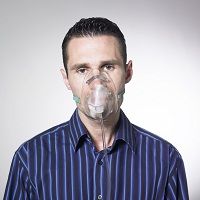Article
A Quarter of COPD Patients are Depressed
Author(s):
Nearly 1 in 4 patients with COPD also suffers from depression, possibly increasing the risk of early hospital readmission for these patients if left untreated.

A quarter of chronic obstructive pulmonary disease (COPD) Patients suffer from depression — possibly increasing the risk of early readmission for these patients if left untreated, according to findings of two studies published in the journal Chest.
Researchers from Manchester Metropolitan University in England observed more than 1,500 COPD patients in order to probe the insufficient evidence about the long term course of depression symptom trajectories and their impact among patients with COPD. The researchers analyzed the three year follow-up data of these COPD patients who participated in the COPD Longitudinally to Identify Predictive Surrogate Endpoints study. Those patients were split into four branches based on their depression scale score and antidepressant use at baseline and at three years: never depressed, new onset, remittent and persistent depression.
One in four COPD patients had persistent depressive symptoms over three years, the researchers reported. Additionally, the odds for new onset depression increased with worse health status and moderate to severe breathlessness in COPD patients.
The patients with either persistent or new onset depression were found to have more frequent flare ups of COPD and more pronounced deficits in performance. The researchers extrapolated that the reduction in quality of life and subsequent depression for these patients stems from the COPD exacerbations, frequent hospital admissions, relapses and readmissions, and death either hospitalizations or soon after.
In a secondary study from the University of Texas, about a quarter of COPD patients had one or more psychological disorders. Researchers sampled five percent of COPD patients diagnosed between 2001 and 2011 receiving Medicare benefits. COPD patients in that study with depression, anxiety, psychosis, alcohol abuse and/ or drug abuse compared to those who did not display those behaviors had higher odds for being readmitted to hospitals for exacerbations within 30 days of their release.
In North America and Europe, the study authors added, hospitalizations due to flare ups make up more than half of the total cost for managing COPD.
“The prevalence of depression alongside COPD found in these two studies is alarming,” Dr. John Studdard, President Designate, American College of Chest Physicians, said in a press release. “Pulmonologists should consider the findings of this research when treating patients with COPD. The impact of depression coupled with COPD on quality of life, exacerbation likelihood and readmissions should be further explored.”




